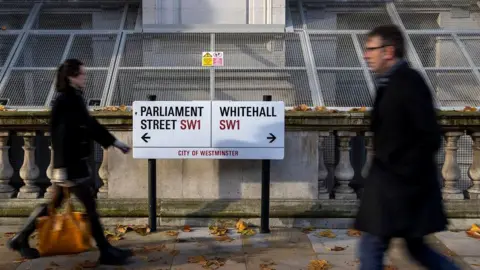In a significant policy shift, the UK government has announced that civil service internships will now be restricted to students from working-class backgrounds. This change stems from a broader initiative to make the civil service an institution that reflects the socio-economic diversity of the country. Specifically, the interns will be selected based on criteria that evaluate their parental occupations when they were 14 years old, ensuring that the scheme primarily benefits those from lower socio-economic classes.
The primary aim of this new policy is to enhance the inclusivity of civil service roles and to attract a more representative group of talent. Pat McFadden, the Chancellor of the Duchy of Lancaster and a key architect of this change, remarked that increasing the number of working-class individuals within the civil service will enrich decision-making processes by fostering a workforce that understands the needs and perspectives of the broader population. He emphasized the government’s belief that diverse representation leads to improved governance, stating, “Government makes better decisions when it represents and understands the people we serve.”
Currently, students from lower socio-economic backgrounds constitute around 25% of those in higher education. However, they only made up 12% of successful candidates for the Fast Stream program, the principal entry route for graduates into the civil service, in 2024. Recognizing this gap, some Labour ministers have expressed concern regarding the perceived privilege within certain segments of the civil service, citing a trend of hiring individuals from similar backgrounds.
Previously, a summer internship program for final-year undergraduates was in place and had already been operational. Scheduled for a duration of six to eight weeks and compensated financially, this arrangement provided students with valuable exposure to various civil service operations, including event planning, ministerial briefing preparation, senior civil servant shadowing, and policy research. The modifications to the internship program will take effect starting in the summer of 2026. From this period on, only students from underprivileged backgrounds will be accepted into the program.
Successful participants who demonstrate exceptional performance during their internship will gain preferential treatment in the Fast Stream selection process if they choose to apply after completing their degree. In parallel to the adjustment in internship qualifications, the government is also working to extend career opportunities within the civil service outside London. Announcements made earlier indicate that by 2030, half of the Fast Stream placements will be based outside the capital, showcasing an effort to decentralize civil service employment opportunities.
The Labour government’s critique of civil service practices since their election last year has been notable. In December, party leader Sir Keir Starmer articulated concerns regarding the comfort and complacency of Whitehall staff, describing it as “the tepid bath of managed decline.” This statement drew ire from civil service unions but reflects a broader ambition to reshape the operational landscape of the civil service.
Responses from opposition parties have varied. Conservative shadow cabinet office minister Mike Wood has voiced strong objections to the government’s approach, arguing that talent should be identified based on ability rather than socio-economic background. He expressed concerns that the current scheme could send a message of exclusion based on a particular social profile, asserting that all young individuals should be considered regardless of their class background. This tension underscores the ongoing debate surrounding meritocracy, access, and fairness within UK public services.
The introduction of these changes coincides with other evolving dynamics in public service recruitment and reflects the Labour government’s commitment to altering how the state works. By focusing on enhancing diversity within the civil service through inclusive hiring practices, the government hopes to cultivate a civil service that is not only representative of society but is also equipped to tackle contemporary challenges faced by the population at large.











